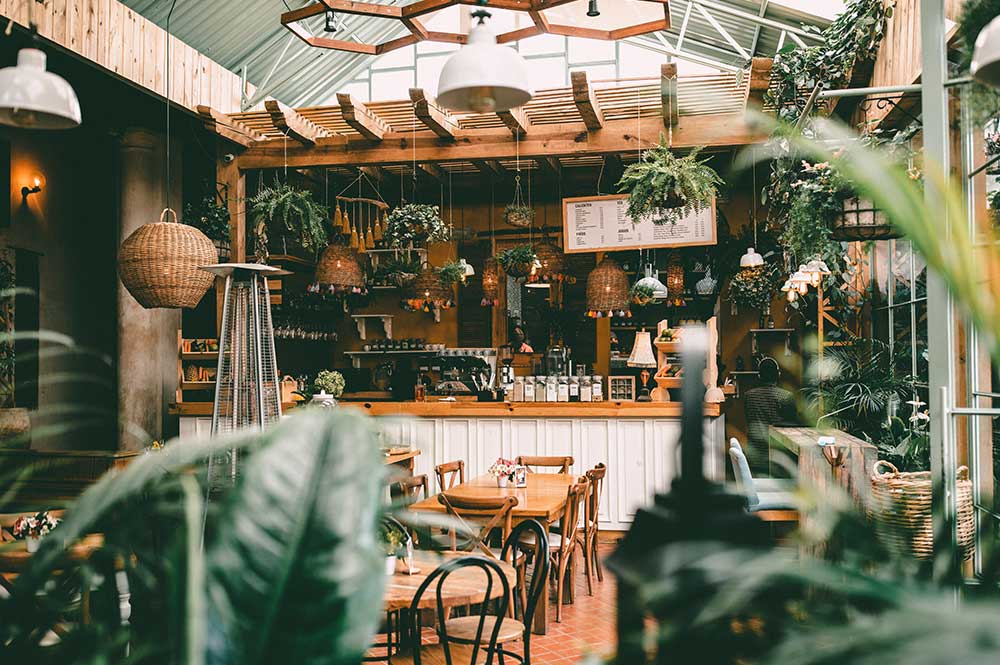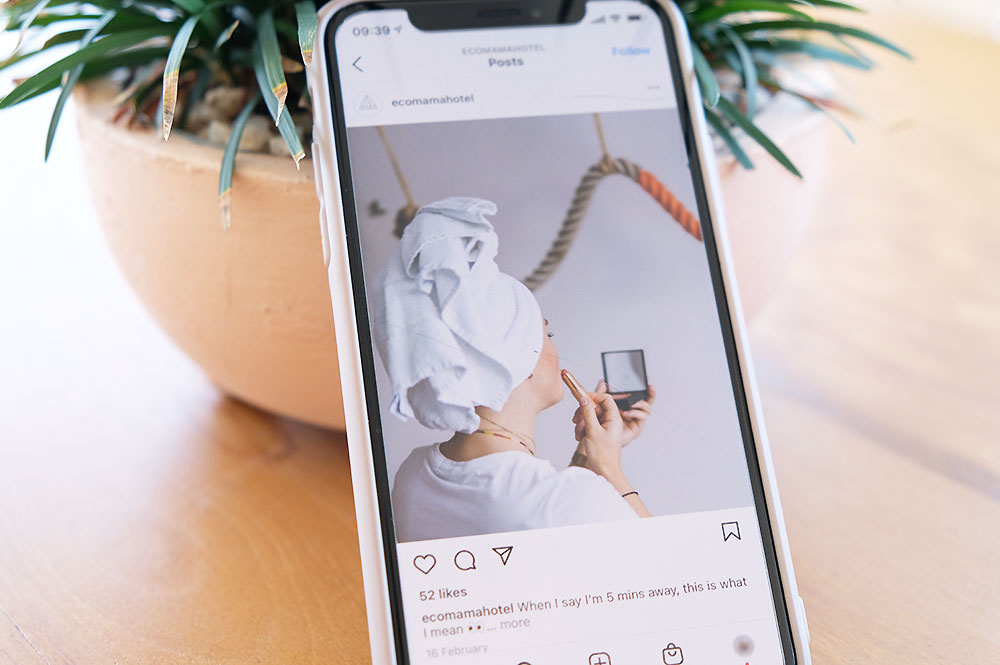Often, it's the small things that make the difference between an unpopular hostel that backpackers avoid and a great hostel that they love. By incorporating the hostel owner suggestions in this guide, it's possible to be that hostel which stands out from the crowd, creating excellent reviews and encouraging guests to extend their stay time and again.
What Backpackers Look For in a Good Hostel
In the comments and reviews on Hostelz.com, we see the same issues over and over again. Many of these issues cost little or nothing for a hostel to fix. Often it's just that hostel owners are unaware of what they need to do to keep their guests happy and their hostel full.
This article onhow anyone can find good hostelshighlights what travellers are looking out for.
This article was produced thanks to the input of the Hostelz.com staff, our reviewers, and many many backpackers all over the world through their comments on Hostelz.com, with additional input thanks to the Lonely Planet Thorn Tree forums and the HostelManagement.com forums.
We hope that over time more hostel owners will be aware of these points and it will help to improve the hostel experience for all backpackers, and the hostelling industry as a whole.
Helpful:How to make your hostel POP on Instagram
Backpackers know what they want. They know what they are looking for, what they like/dislike - the answers are in the reviews.
Here's what all good hostel owners need to think about...
Your Shortcut
Whether you're running a backpackers hostel or a party hostel, these tips work across the board. What makes a good hostel? Let's jump in and see!
1. Policies and Rules
Implementing policies and rules are inevitable. Yet, if it's your own hostel, there is wiggle room within these rules. And this is where strict rules can easily become respectable rules that everyone can get on board with.
Remember; you're not stepping into the role of parent. Treat travellers with respect and like the adults they are, and it will work wonders for your business.
Some hostel owner suggestions for policies and rules include:
- No curfew.Guests should at least be given a door code or key if they want to stay out late without worrying about getting locked out of their hostel. Experiencing the nightlife of a culture can be as meaningful as daytime activities. No curfew allows guests to experience the vibrant nightlife of cities that are known for it, such asBerlin,BarcelonaorAmsterdam.
- No lockout.There is no reason to kick out guests when cleaning the hostel (hostels all over the world manage to clean without forcing out their guests, it is possible to do). If your spaces are small, consider putting up clear signs during cleaning hours and ask that guests do not enter the kitchen during cleaning, for example.
- Allow check-outs until at least 11:00, but 12:00 or later is better. Guests don't like being rushed to leave in the morning. It's ok to ask incoming guests to wait until later in the afternoon for their bed to be ready.
- Never wake up sleeping guests.Guests should never be woken up in the morning by playing music over speakers or by a staff member coming into the room to wake them up, especially guests who aren't checking-out that day.
- If possible,avoid large school groups, too many long-term guests, and an overwhelming number of families, older travellers, or other non-backpackers that tend to detract from the fun social atmosphere backpackers want from a hostel.
- After check-out, guests should alwayshave access to the common areasfor the rest of the day. At the very least, free luggage storage should be offered until their onward travel commences.
- Drinking alcohol in moderation(especially if it's just having some wine with dinner)should be allowedin the hostel if legal according to laws of the region. Drinking may need to be kept under control if excessive drinking and rowdy behaviour is a problem.
Here are11 safety tips for hostel travel- what guests expect regarding safety and security at hostels.
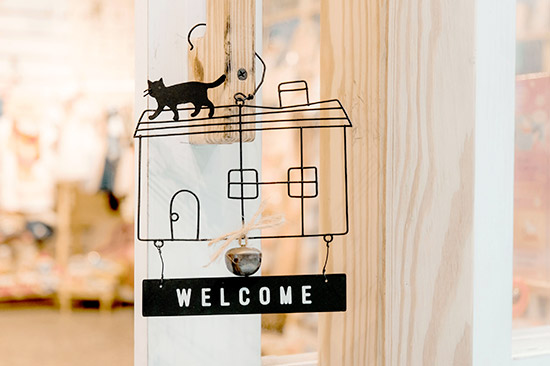
2. Reception / Check-in
This is possibly themostimportant aspect to think about when creating an awesome hostel. First impressions count for a lot.
Let's face it, we've all been there; a rude member of staff shows little interest and leaves a bad taste in your mouth for the entire stay. Don't let this be you!
Some hostel owner suggestions for reception and check-in include:
- Friendly staff. Nothing matters more than having friendly, welcoming, informative, tolerant staff - even when dealing with difficult guests. They should know great travel tips, local knowledge, places to eat etc. Excellent customer service is everything.
- Prompt communication. Answer emails and return phone messages within an hour during business hours. If your receptionist says they'll call you back, they'll call you back.
- Be understanding about delays and travel problems, and offer at least a partial refund if a guest is legitimately unable to arrive for their reservation (and all nights past the first night should be refundable).
- Provide clear directions to your hostel. If some guests still have trouble finding it, take that as a heads up and improve your directions.
- Accept credit cards, or if not make sure guests are warned in advance that credit cards aren't accepted, since the acceptance of credit cards is expected at hostels in most (but not all) parts of the world. Make itsuper clearin advance if you only accept cash payments.
- Use the major booking sites(Hostelworld, Booking.com, Hostelsclub) and divide your available rooms/beds across them. Also, make sure to keep a few spare for walk-ins. If it's getting towards the end of the day, drop your price by a $ or two to push sales.
- If reception isn't open 24 hours, make sure guests are told during what hours they can check-in (and provide alternative arrangements for a late arrival if necessary). Be sure to make this clear in your confirmation email with clear instructions of how to check-in when reception is closed. Provide an emergency contact number.
- Have maps, bus schedules, weather reports, activity leaflets and travel information available. Also a business card with the hostel's email address is a great take-away.
- Have snacks, drinks, basic toiletries,padlocks(if needed for lockers), andearplugsavailable for sale. Offering bicycle rental (hire) is also a great idea.
Useful read:Do Hostels Have Lockers?
- Have a suggestion boxfor anonymous suggestions/complaints. A guestbook or whiteboard is also a fun idea to encourage a communal vibe.
Here we help travellers decidewhen to book hostels. This will help you prepare for early bird and last-minute bookings.
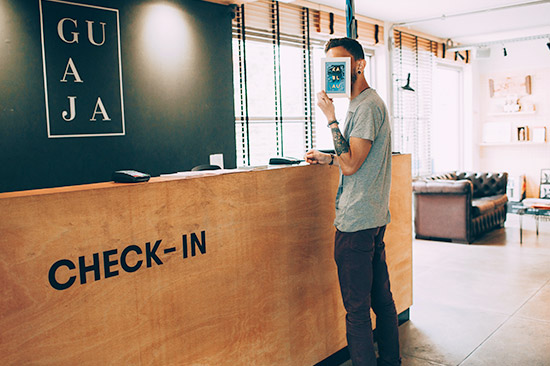
3. Common Areas (social & interactive)
You can almost gaurantee that travellers will spend the majority of their time in the common areas. Provided they are welcoming, comfortable and full of awesome vibes.
We've provided17 tips for sleeping and staying at hostelsfor our readers. Learn what they are looking for!
It's the hostel's duty to provide great spaces for relaxing, socialising and generally having a nice time. It can be the difference between a bad hostel and an out-of-this-world experience!
- Provide a fun, comfortable, social, inviting social space. Backpackers stay in a hostel because they want to meet other backpackers, so a social space that encourages interaction is crucial for any hostel.
- The common areas should beopen 24 hours, and ideally should be separated from the sleeping areas so that noise isn't a problem.
- Provide books, board games, video games, etc. Yet don't let video games become the focus of the social space as it's not everyone's cup of tea. Besides, people are travelling for new experiences, not ones they can enjoy at home.
- A TV is optional, but if there is one it shouldn't be the entire focus of the social space. If there is a TV, have movies available and encourage movie nights for everyone to join. Netflix is an option and saves space.
- Offer social events- movie night, club night, BBQs, free walking tours, group museum trips, etc. If the hostel is too small to have hostel staff guide a group, at least post a suggested daily activity and a meeting time for guests who are interested in going somewhere as part of a group.
- Never allow smoking inside the hostel.Most guests, even smokers, don't want to breathe dirty air. If you decide to have a dedicated smoking area, make sure it is away from the main buildings and rooms.
- Bright paint colors, a quirky decorating style, art, murals, and maybe even a theme help to make the environment more fun (anything is better than sterile white walls). You could eveninclude music, a tea/coffee station and get inventive with seating(beanbags, hammocks, up-cycled furniture)
Spend some time thinking about you audience. Whathostel typeare you? Who are you aiming to bring through the door?
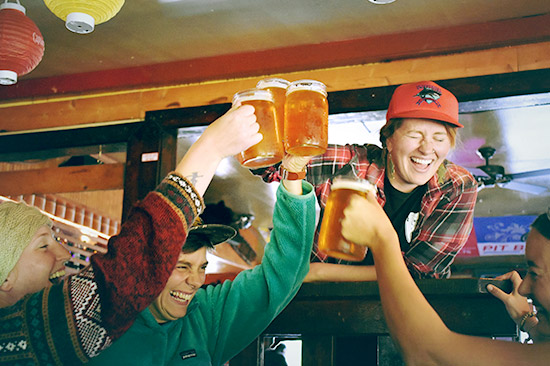
5. Rooms (clean, sturdy beds & lockers)
Here are some tips for creating great rooms that will impress your guests. Obviously, everyone has their individual preferences, yet there are certain things which are consistently mentioned.
Have a read and take notes!
- Include mixed-gender dorms.It's not the 1950s any more. There isn't any reason to have separate male/female dorms. Mixed dorms allow for more social interaction and add to the fun of staying in a hostel. Some females may possibly prefer having a female-only room available as an option.
- Separate beds (not bunk beds) are greatly preferred, but may not be practical. If using bunk beds, sturdy wooden ones are best, not wobbly metal beds, preferably with the top bunk not connected to the bottom one (loft style beds) so that someone sleeping in one bunk doesn't get disturbed when the other person is moving around.
- Each bunk should have aprivacy curtain, lamp, power socket(or USB) and a little shelf.
- Rooms should have a clock, and a dim nightlightto let people find their way around the room at night while people are sleeping without flipping on the overhead light.
- While dorm rooms should be the primary room type, it's a plus if a hostel can also provide someprivate roomsas a secondary option. Couples and older travellers use hostels more and more these days.
- Having manysmall dorm rooms with fewer bedsis preferred to having large dorm rooms with many beds.
- Free lockers(preferably in the room, but otherwise in the common area). Lockers big enough to fit a backpack are great, but small ones big enough to fit a laptop and important documents, such as a passport, will do. Learn more about ifhostels provide lockers.
- Thehostel room designhas so much potential, too. Consider themed rooms, or focusing more on a modern vibe. Travellers love it when they find something unique, and the more picturesque, the more likely you are to have your hostel spread on social media.
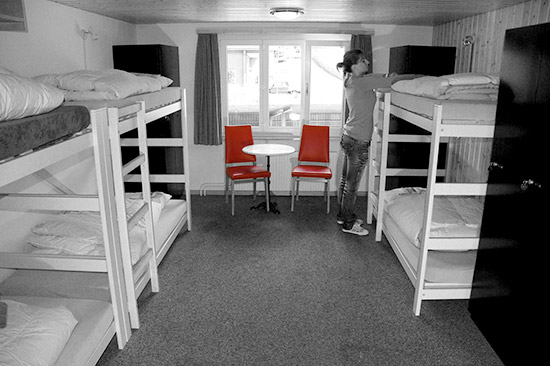
6. Bathrooms (toiletries, clothes hooks etc)
You may think that not much effort needs to go in to toilets and shower rooms. But you're wrong! These are the areas of the hostel that have a larger possibility for grime, dust and mess.
If a traveller comes across a horrible bathroom, it can taint the overall hostel impression. This is easy to avoid with the below steps.
- Provideliquid hand soap and paper towelsfor hand washing. Keep these topped up throughout the day.
- Provide showers with 24 hourhotwaterthat put out a decent amount of water with temperature control (especially in countries likeIcelandorNorway), and a water control that stays on (not the push-button timer type), and a shower curtain or dividers that give a reasonable amount of privacy
- Showersmusthave a soap dish or shelf for toiletries and a changing area with benches, a table, or at least some hooks...somewhere to put clothes where they won't get wet(it's amazing how many hostel shower areas have no place to put clothes while showering!).
- Shared bathrooms that are outside of dorm rooms(rather than ensuite) are preferred because there is usually less waiting time if there are multiple shared bathrooms rather than just a single bathroom inside each room (and they're quieter for others who are sleeping in the room).
- Bathrooms should becleaned regularlyand kept free of mold, hair, etc. Also, try not to let the toilet roll run out on some poor unsuspecting soul!
- Sufficiently bright lighting at the mirror area and sinks with hot water (necessary for shaving and applying make-up)

7. Kitchen (utensils, open 24/7, free breakfast)
Ah yes, the all important shared kitchen. This is usually a big plus for budget travellers that are looking to travel cheap, especially when it comes to saving money on food.
Hostels are generally expected to provide a kitchen for guest use, but if not, make sure guests are made aware in advance that a kitchen isn't available.
- Make sure guests have access to tableware, pots, plates, bowels, cups, and supplies like basic condiments, cooking oil, etc., available.
- Provide plenty of refrigerator and pantry space, cleaned out regularly. A fridge full of old, rotting food does not look good!
- Make sure guests label their food. Put up signs, mention it at check in and provide plenty of stickers and pens so people do this. Let them know that any unlabelled food will be removed without notice - this helps you to keep on top of what's been left behind and needs to be thrown out.
- Guests should be expected to wash their own dishes, but not all of them will, so the hostel should expect to have to clean up after those who don't.
- The kitchen should beopen 24 hours—post a sign with "quiet hours" if noise is a problem. Make it clear if you need to close the kitchen during cleaning hours.
- Offer recycling bins, seperate food waste- backpackers tend to be environmentally conscious.
- Offerfree or cheap breakfastwith at least bread/toast, jam, cereal, coffee, and juice. Providing a jug of pancake mix for making pancakes is also a great option.
Useful read:7 Simple & Delicious Hostel Recipe Ideas
- For newly designed hostels, ideally the kitchen should be combined with the common room with the cooking areas on an island so that guests can interact while cooking.
- Bonus pointsgo to any hostel that has an oven! At the very least, provide 2-3 stove tops that are dotted around the kitchen + plenty of space to chop and prepare. The bigger the hostel, the bigger the kitchen.

8. Don't "Nickel and Dime" Your Guests
Nothing upsets guests more than getting charged for things that are normally expected to be free in most hostels. They know when a hostel owner is charging them for a service that costs little or nothing to provide. The bad vibes vastly outweigh the little bit of profit.
Things that should always provided at no charge to guests:
- Internet computersideally should be free, or otherwise offered for a reasonable fee (don't charge more than the equivalent of US$1 / 1€ per half hour). It's unfortunate that some hostels charge their own guests more for internet access than the internet cafe down the street. An internet connection is now reasonably inexpensive in most developed parts of the world, so most hostels in most areas can be expected to provide internet access.
- Free WiFi is a must(never charge guests for Wi-Fi). If the hostel already has an internet connection, adding a wireless internet router costs almost nothing, so hostels with an internet connection should be expected to provide free Wi-Fi. It doesn't need to work from the rooms, just having it in the common area is fine.
- Provide a phone that allowsfree local/toll-free calls(assuming the phone company in your hostel's country offers unlimited free local calling).
- Lockers should always be freefor guests (but it's ok to sell padlocks if needed for the lockers).
- Free luggage storagebefore check-in and after check-out. Lockers are best, but the luggage area should at least be in a supervised area. It's also not cool to hand over the key and let people access it without supervision. If this is your protocol, implement some sort of ticket system so you actually know that person has luggage in the room.
- Linen should be free, and towels available (either for free or a small charge). Not as many hostelers carry their own sleepsheets or sleeping bags these days, so most of them will need sheets, and sheets are now typically included in the bed price.
Read:21 Ways to Save Money while Travelling- a traveller's perspective that will help you create an awesome hostel they can't refuse.
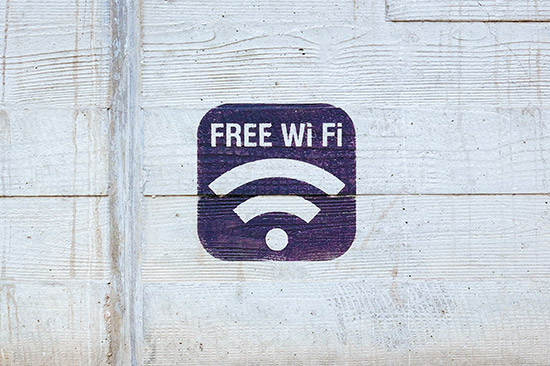
Summary: Hostel Owner Suggestions
Alright dear hostel owners and those managing a hostel, this is your ultimate guide on how to create an incredible hostel world for your guests. New hostel, old hostel - all of these tips are useful no matter how long you've been in the game.
Another thing to consider
One thing to always keep at the forefront of your mind when trying something new is; would travellers appreciate this or not?
Keep an eye on your reviews, speak with guests and listen to what they have to say. They know what they want - it's your job to provide if you want a successful and popular hostel business.
Hostelz.com is the world's most comprehensive hostel-focused travel platform. We bring together listings from all the major booking sites to help you easily compare prices, see real guest reviews, and find the best deals—no matter where you're headed. Check out our How It Works page.
Not sure which hostel to pick? Use our Hostel Comparizon Tool to compare your favorite hostels side-by-side before you book.
Let us help you travel smarter and sleep cheaper.
You are Overpaying for Hostels - that Stops now!
Platforms like Hostelworld and Booking.com often have different prices for the SAME room. Even availability can vary depending on the site. 😱
That's where Hostelz steps in. We are the ultimate price comparison tool for hostels. Save up to 23% on your next booking.
Tours & Activities for Solo Travelers
Join group tours, find hidden gems, and meet fellow travelers! GetYourGuide offers thousands of experiences perfect for backpackers and solo adventurers.
Easy Visa Applications Worldwide
Need travel documents fast? iVisa handles the paperwork so you can focus on planning your adventures, not stressing over entry requirements.
Easily Compare Travel Insurance
Starting from $42/month
Starting from $50/month
Affordable and customizable
Volunteer at Hostels Around the World
Exchange your skills for free accommodation and dive into local cultures with Worldpackers. How to find Volunteering Jobs and Travel the World? Our step-by-step guide.
